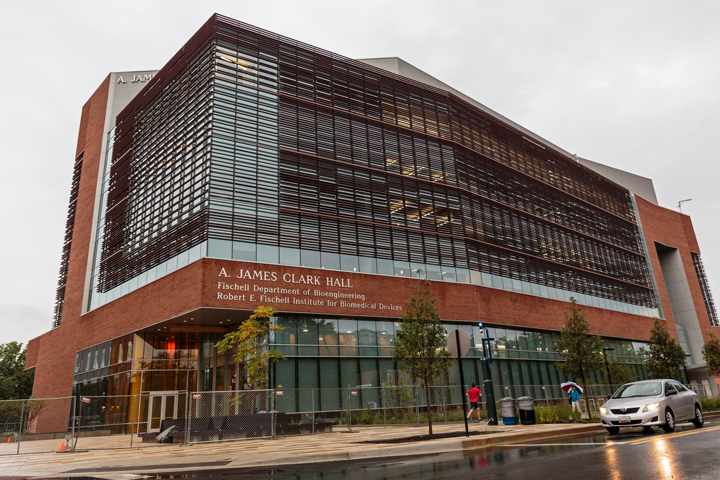Views expressed in opinion columns are the author’s own.
In October, the University of Maryland received a $219.5 million donation from the A. James and Alice B. Clark Foundation. The gift will create and fund scholarship and fellowship programs, faculty positions and the expansion of the engineering school.
This donation is amazing, and the foundation’s generosity should, of course, be applauded. The donation also aligns with university President Wallace Loh’s “vision to make College Park into the Silicon Valley of Maryland.”
[Read more: University of Maryland to receive $219.5 million donation — the largest in its history]
Loh’s vision is inspirational, if a bit lacking in foresight. It’s no surprise that STEM fields such as engineering remain at the forefront, especially at a university that places such a heavy emphasis on innovation. The push toward STEM and innovation is a good thing — unless it means the liberal arts fall to the wayside.
This university has long been more than just a producer of STEM degrees, and it would run counter to principles of innovation and entrepreneurship if we failed to protect and encourage the liberal arts. Innovation doesn’t just mean innovating science. It also means innovating ways of thinking and teaching. STEM fields may be this university’s bread and butter, but they are not the only areas of study that should matter.
We can’t and shouldn’t become a glorified job-training facility. That demeans the principles of higher education. Practicality is necessary in life, but there is value in the idea of education for education’s sake. Higher education must be about more than just the expected salary information after graduation; law, politics, ethics and teaching all demand more than just a mastery of STEM skills. They require the liberal arts, and while some may happily imagine a world in which lawyers and politicians don’t exist, it just isn’t practical.
I support STEM fields, and I’m proud to attend a university so intent on making strides in those fields. The vision of student innovation and a new Silicon Valley makes me proud, even if, as a liberal arts major, I’m not directly involved in it. Progress is always good, but I don’t want progress in one area to mean others suffer.
[Read more: The Clark donation favors STEM. That’s bad for UMD students.]
Unless this university wants to become a school known only for a few select fields, it needs to support other disciplines the way it does STEM. As it stands now, the diversity and strength of the programs at this university is laudable. I can think of only a few universities that can boast such a diversified and generally excellent selection of programs. So, administration needs to make every effort to keep it that way.
The sooner administration understands that a successful university comes from valuing all departments and begins building up other programs the way it does STEM, the closer it will be to becoming a truly elite, unbeatable beacon of innovation, diversity and affordable education.
Caitlin McCann is a sophomore communication major. She can be reached at caitlinmccann32@gmail.com.



